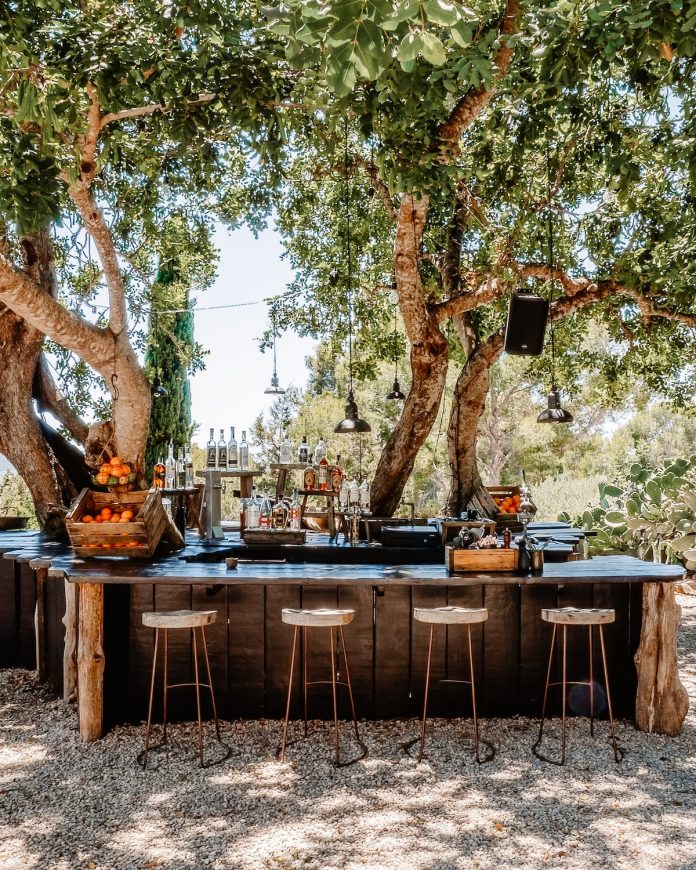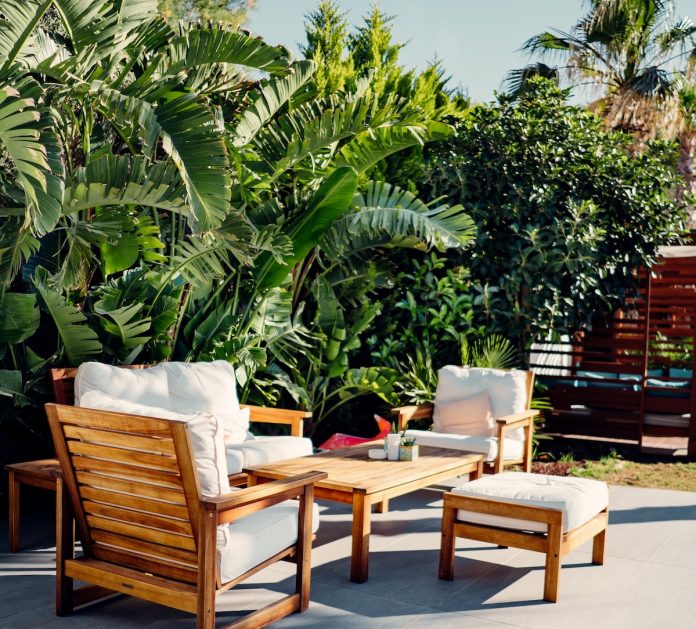7 Innovative Backyard Patio Design Concepts that Create Seamless Indoor-Outdoor Living Spaces
In recent years, homeowners have found a renewed love of nature, opting to redo their backyard patios. Popular upgrades often include built-in barbecues, intricate gardens, and fire pit features. For others, fully bridging indoor-outdoor living spaces is even more desirable. Connecting a home’s interiors to the outside creates a seamless living environment. Homeowners have several options for creating flow between their home interiors and backyards. Allow these seven innovative backyard patio design concepts to inspire the perfect indoor-outdoor living projects.
1. Floor-to-Ceiling Windows and Doors
Ventilation is essential to rid a home’s interior of germs and poor air quality. According to one survey, 43.9% of homeowners open windows during the spring and summer for increased air exchange — primarily in Western states.
The ability to connect indoor-outdoor living spaces relies heavily on windows and doors. Replacing interior walls with floor-to-ceiling windows provides sweeping views of the backyard. Some window panels can fold into each other to create an open space between an indoor and outdoor patio.
A glassed-in patio can also be an all-weather room for homeowners to enjoy outdoor scenery during the winter. Thanks to the expansive windows, a home will receive ample natural sunlight.
2. Cohesive Flooring
Installing the same flooring from the inside to the outside is another way to build the connection to outdoor living. The floor leading to the patio may be white-washed brick or travertine stone. When someone opens the sliding doors, it can create one cohesive space.
A wooden deck may be stripped and restained to match indoor hardwood floors. Composite floorboards are durable options and hold onto their color for longer without fading.
Of course, concrete is the most durable of all flooring materials. However, a professional must ensure the concrete mixture is airless. Any air pockets can weaken the cement and induce cracking or other damage — potentially dangerous for an area with high foot traffic. Removing all air from the cement ensures a smoother, well-bonded finish.
3. Privacy Screens and Hedges
Creating indoor-outdoor living spaces may expose homeowners and their properties to prying neighbors. Much like indoor living, homeowners value privacy in their backyards.
According to research cited by senior designer Michael Stone from California-based Bassenian Lagoni, 85% of single-family homeowners want a private backyard. About 77% of multi-family homeowners say the same.
Privacy screens and tall bushes can create a barrier between indoor-outdoor living spaces and the neighbor’s yard. Hedges will enhance the natural aesthetic of the outdoor area even more.

4. Outdoor Kitchen and Entertainment
A frustrating aspect of hosting guests outdoors is the need to run back and forth between the kitchen. As a result, some homeowners choose to install a complete outdoor kitchen.
Built-in barbecues, pizza ovens, bars, refrigerators, and countertops with bottom cabinets are just a few of the design concepts one can include to make a backyard space feel more homey. For those who enjoy entertaining, an outdoor kitchen with comfortable seating makes sharing a meal under the stars possible.
Of course, what is a party without music? Adding a speaker system or television allows homeowners to play background music or watch sporting events with friends and family.
5. Screened-In Patio
As it turns out, citronella candles are only effective for about 30 minutes before mosquitoes become a problem again. On the other hand, DEET provides up to six hours of protection.
When relaxing at home, few are eager to apply bug spray. A screened-in patio enables people to enjoy outdoor living without dealing with a buggy situation. Especially in the summertime, screens create a barrier against bug bites and mosquito-borne diseases. Homeowners can sit on their patios with a good book and enjoy warmer temperatures and natural aromas.
Using the same flooring between the screened and outdoor patio should still make the indoor-outdoor space more cohesive. Carrying similar design elements throughout will also create a seamless design.

6. Lighting
Strung lights can offer a soft glow from a patio overhang, ensuring optimal coziness in any indoor-outdoor living space. Homeowners may consider flame torches, walkway lighting, or solar-powered garden lights. As long as outlets are protected from the elements, a chandelier or ceiling lights could be options as well.
The lighting homeowners choose crucial for tying the spaces together. Nothing can beat natural light, though. Ensuring nothing blocks the openness of the outdoors will allow natural light to shine through.
7. Natural Accents
Decor — potted plants, seating arrangements, lighting, and wall art — will create a relaxed, connected environment. Homeowners should consider a living wall or large indoor tree as a focal point.
Hanging plants and plant stand at varying heights can also complement the spaces. Of course, potted plants may cause water damage on a wooden deck, so use faux plants, raise them off the ground, or place them on an outdoor rug. Homeowners may incorporate floral-patterned textiles for seat cushions and throw pillows or select solid earthy tones, depending on their tastes.
Endless Backyard Patio Designs for Indoor-Outdoor Living
Those who enjoy spending time outside would get the most use out of an indoor-outdoor living space. Of course, homeowners have endless design concepts at their fingertips to create the perfect area for relaxing and entertaining. Use these ideas in a consultation to tie outside and inside spaces together.


